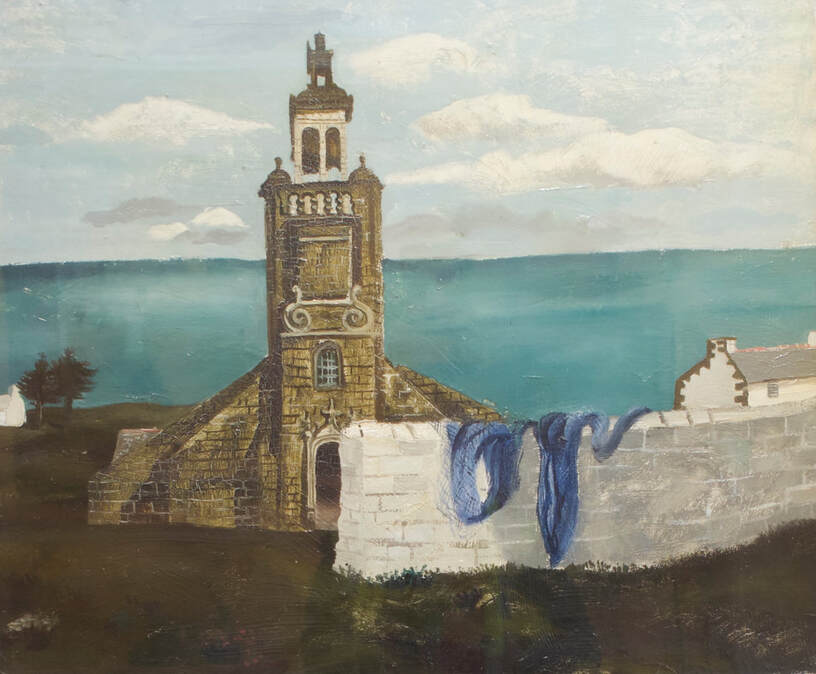|
Christopher Wood 1901-1930 Church at Tréboul 1930 Oil on board 21 x 28 ½ inches (53 x 72 cm) PROVENANCE Purchased from the Artist by Winifred Reitlinger August 1930 and given as a wedding present to Captain and Mrs Stephen Roskill; by descent. EHIBITED Memorial Exhibition of The Most Recent Paintings by Christopher Wood, Alex, Reid & Lefevre, London, April1932; Christopher Wood: Exhibition of Complete Works, New Burlington Galleries, London, March-April 1938 (10); Christopher Wood: Paintings and Drawings, Kettle’s Yard, Cambridge, July-August 1974; Christopher Wood, The Minories, Colchester, March-April, DLI Museum, Durham, June-July, Towner Art Gallery, Eastbourne, July-August, Royal Albert Memorial Museum, Exeter, August-September 1979 (60). LITERATURE Eric Newton, Christopher Wood 1901-1930, London 1938 no.435. This picture was bought from Christopher Wood in August 1930 by his friend Winifred ‘Doodie' Reitlinger to give as a wedding present to a friend. In a letter that is now attached to the back of the painting Wood wrote to her warmly from France: 'It is very nice to hear from you and sweet of you to want a picture to give to your friend - I am sending you the best one I have & I don’t think you can fail to like it as everyone here does … I am dying to see you again & wish you were here I feel well in your company and almost myself.’ Reitlinger purchased the painting for £30. Wood's visit to Brittany the previous year had allowed him to discover a new confidence and to work with a lyrical, authentic voice that was wholly his own. The mixture of sea and sky, Breton myth and legend and the simple life of the fishermen and villagers provided something he had found previously only in Cornwall. In the summer of 1930 he returned again after his exhibition at Bernheim-Jeune in Paris. 'This year's work is in the same spirit as last year’s, he wrote to Lucy Wertheim, ‘but much further on, much more composed and reflective … sounder and subtle. I have painted a good deal of architecture, churches in a curious lonely country by the sea, very restful, but very strong and determined.’ When he arrived in Tréboul Wood was initially the only guest at the Hotel Ty-Mad, taking two rooms, one to use as a studio. He was totally absorbed in his work. In this final phase of his life he produced around forty paintings in forty days an extraordinary achievement. He was joined at the hotel by the poet Max Jacob, and they evolved a comfortable camaraderie where each worked during the day and spent their evenings together simply. Later in the trip Wood was joined by the painter Christian Bérard. Wood burned with creative intensity at Tréboul, producing works of great originality and flair, and increasingly, depicting the mystery of religious ritual, perhaps encouraged by Jacob's interest in Catholic mysticism. Alongside this creativity was an increasingly heavy reliance on opium, and a withdrawal from it when his supplies ran out. Yet these various forces combined at Tréboul to allow him to produce art that resonates with a unique strength and vision. After Wood’s suicide Winifred Nicholson wrote: ‘I consider, you know, that he practically gave his life for those pictures. He put everything he knew and every force he possessed into them and then had nothing left to do battle with his opium difficulties.’ Bérard for his part believed he should have recognised the change in Wood's work as the change that happens in the work of genius painters shortly before their death. |
Proudly powered by Weebly

